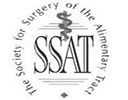Dysphagia (difficulty swallowing)
The act of swallowing is governed by the functioning of many nerves and muscles that help move food down the esophagus from the mouth, into the stomach for digestion. The difficulty, or inability to swallow food or liquids with ease is also called dysphagia.
With dysphagia, you may feel like food or liquid is stuck in some part of your throat while swallowing, or experience symptoms such as choking, coughing, chest pain, pressure or heaviness in the neck or chest, reflux of undigested food, heartburn, nausea and a sour taste in the mouth.
If you present to the clinic with difficulty swallowing, your doctor will order a series of tests to look for problems with the muscles, narrowing, blockages or changes in the oesophageal lining. An upper endoscopy may be performed, where a thin tube fitted with camera is inserted down your throat to detect abnormalities. Your doctor may order other tests to confirm the diagnosis, such as chest and neck X-rays, barium swallow test (barium solution that is swallowed coats the oesophageal and stomach linings and is detected by X-ray imaging), oesophageal pH and pressure monitoring, and blood tests.
While stress and anxiety can often lead to tightness in the throat, difficulty swallowing is a common symptom of many neurological disorders such as stroke, Parkinson's disease and multiple sclerosis. It can also occur with many oesophageal diseases such as cancer, achalasia (muscle dysfunction), scarring, chest tumour and scleroderma (immune system disorder that attacks the esophagus).
Treatment involves identifying and treating the underlying condition. Medications may be prescribed to treat underlying condition such as heartburn, gastro oesophageal reflux disease (GORD) and infections. Your doctor may recommend dilation of the esophagus to expand any narrowed area. An endoscopy or surgery may be performed to remove obstructions in the esophagus (tumour or achalasia).


















